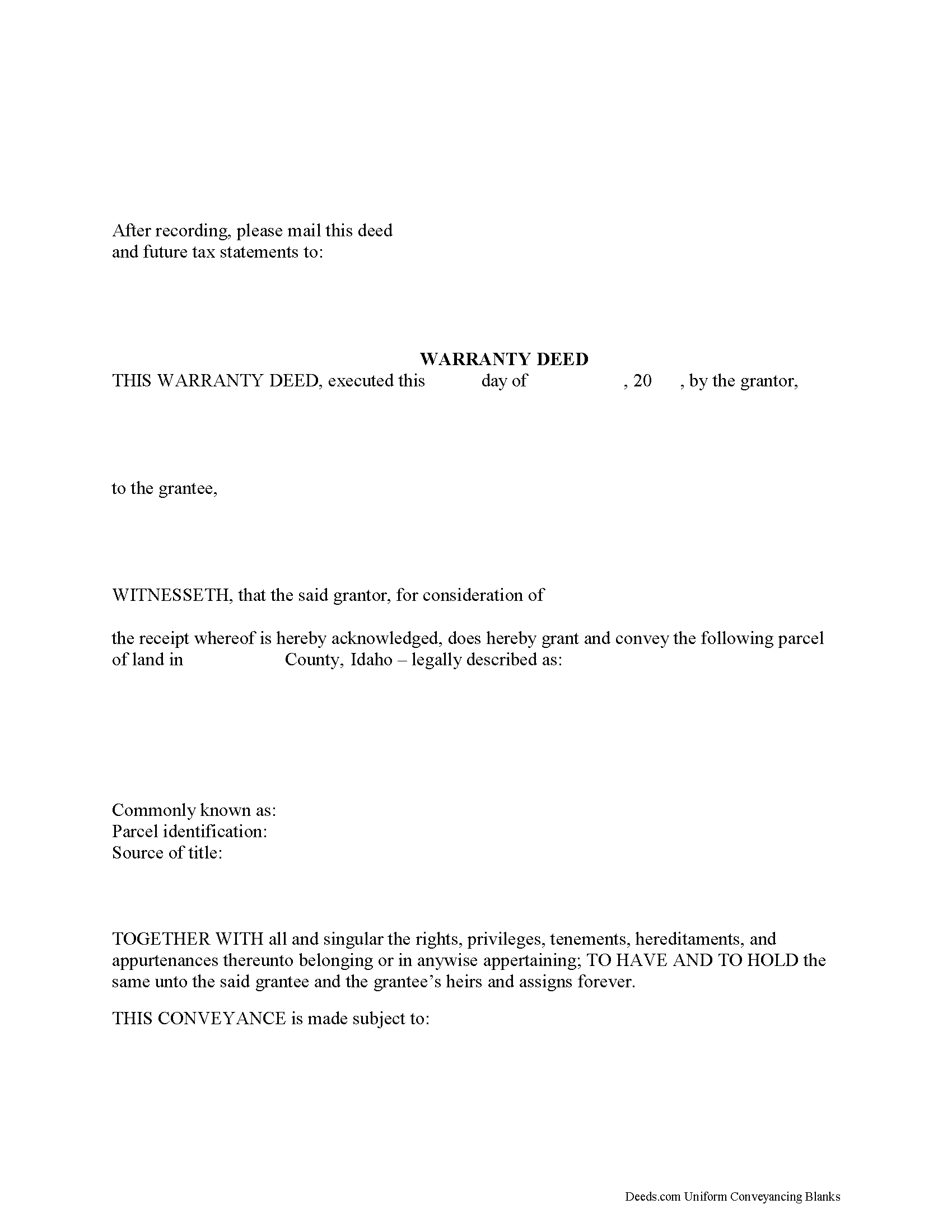Download Idaho Warranty Deed Legal Forms

Idaho Warranty Deed Overview

A transfer of real property in Idaho can be made by warranty deed. This type of real estate deed is customary in this state for transfers of real property. There are no statutory forms in Idaho for warranty deeds. The use of the word "grant," when used in a deed, implies the following covenants of warranty: (1) that previous to the execution of the conveyance, the grantor has not conveyed the same property, or any right, title, or interest therein to any person other than the grantee; and (2) that the estate is, at the time of execution of the deed, free from encumbrances done, made, or suffered by the grantor or any person claiming under him (55-612). The covenants in a warranty deed are not limited to the time the grantor owned the property; rather, the covenants extend back to the property's origins.
A warranty deed must be signed and acknowledged by the grantor before the deed can be recorded, or the execution must be proved, and the acknowledgement or proof should be certified in the manner provided by statute. If an instrument has been executed and acknowledged in any other state or territory of the United States according to the laws of the state wherein such acknowledgment was taken, the warranty deed will be entitled to record in Idaho (55-805). All warranty deeds must contain a proper certificate of acknowledgment in order to be recorded in Idaho. Acknowledgements may be made at any place within the state of Idaho, before a justice or clerk of the Supreme Court, or a notary public, of the Secretary of State, or United States commissioner (55-701). Acknowledgements must meet the requirements set forth in 55-707 of the Idaho Revised Statutes. When not acknowledged, the proof of the execution of the instrument can be made by the parties executing it or by either of them, by subscribing witnesses, or by other witnesses (55-718).
Warranty deeds should be recorded by the county recorder of the county where the property is located (55-808). Every warranty deed and other conveyance of real property that is acknowledged or proved, and certified, and recorded as prescribed by law, from the time it is filed with the recorder, is constructive notice of the contents to subsequent purchasers and mortgagees. Further, every conveyance of real property that is duly acknowledged or proved, certified, and recorded, and which is executed by one who thereafter acquires an interest in said real property by a conveyance which is constructive notice as aforesaid, is, from the time the latter conveyance is recorded, constructive notice of the contents to subsequent purchasers and mortgagees (55-811). If left unrecorded, a warranty deed is void as against any subsequent purchaser or mortgagee of the same property, or part thereof, in good faith and for a valuable consideration, whose conveyance is first duly recorded (55-812). However, an unrecorded warranty deed is valid between the parties to it and those who have notice of it (55-815).